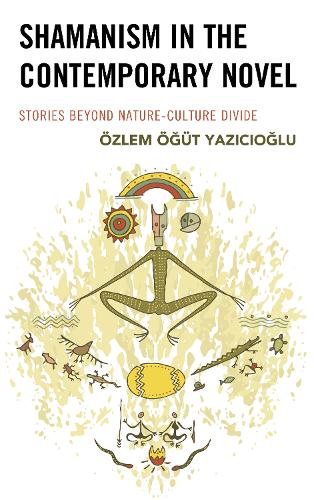
Shamanism in the Contemporary Novel: Stories Beyond Nature-Culture Divide
(Hardback)
Publishing Details
Shamanism in the Contemporary Novel: Stories Beyond Nature-Culture Divide
By (Author) zlem t Yazcolu
Bloomsbury Publishing PLC
Lexington Books
21st March 2022
United States
Classifications
Professional and Scholarly
Non Fiction
Literary studies: from c 2000
809.39382
Physical Properties
Hardback
188
Width 162mm, Height 228mm, Spine 21mm
472g
Description
zlem gt Yazicioglus Shamanism in the Contemporary Novel examines how shamanism is used as a significant trope in a selection of novels. Yazicioglu contends that the shamanic figures and societies featured in these works have been subjected to marginalization, dislocation, and dispossession through imperialist, colonialist, and capitalist encroachments in different historical contexts. Yazicioglu illustrates how the animalistic cosmologies of the nomadic societies and the ritual practices of shamans in these stories offer alternative perspectives to the long dominant anthropocentric conception of the universe, which underlies the overextraction of the earths natural resources and the large-scale destruction of ecosystems under global capitalism.
Reviews
Filling a gap in literary theory, Shamanism in the Contemporary Novel recuperates Shamanism as a ecocritical perspective transcending Cartesian dualisms and affirming the significance of animated nature or spirit-charged matter for developing an environmental-ethical consciousness. These shamanic narratives reveal the embeddedness and relationality of human and more-than-human persons. As ecofeminist Val Plumwood once wrote, we have always been companioned by earth other.
Often denigrated and dismissed as a primitive, magical mode of thinking, shamanism, argues zlem Yazcolu, promotes an ecological ethics that our ecocidal modern world is actually in dire need of. This timely and illuminating book shows how ancient Indigenous notions of animated nature anticipate and align with recent trends in ecocriticism such as posthumanism and new materialism that hold up relationality and interdependence as an antidote to the dominant anthropocentric and mechanistic cosmologies that have brought the planet to the brink of ecological ruin. Erudite and sophisticated yet accessible and engaging, Shamanism in the Contemporary Novel deserves a wide readership and will appeal to all those interested in cutting-edge environmental humanities research.
Shamanism in the Contemporary Novel is a strikingly multidisciplinary and multinational exploration of the role of shamanic thinking in promoting an 'environmental-ethical consciousness.' We have seen material ecocriticism receive a lot of attention in the past decade, but there has been less focus on what might be called 'spiritual ecocriticism.' zlem t Yazcolu's book is a lucid and authoritative contribution to the new spiritual turn in ecocriticism.
Shamanism in Contemporary Novel makes an original, important contribution to literary scholarship on shamanism. Reading the shamanic in an array of novels through new materialist, feminist and ecocritical lenses, Yazcolu interrogates the nature andculture divide that underpins human exceptionalism and the current ecological devastation of Earth. The volume eschews appropriating or romanticizing shamanism and offers it instead as ecological, ethical consciousness-cum-practice that attests to the onto-epistemological entanglement of planetary life.
Author Bio
zlem t Yazcolu is associate professor in the Department of Western Languages and Literatures at Boazii University.
